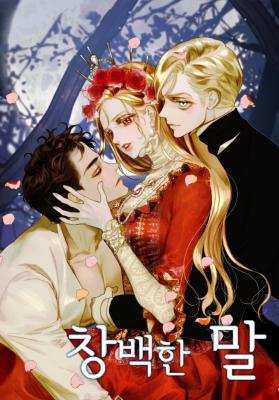This manhwa's probably one of the only ones to make me feel as conflicted as I do now when the subject of rank comes into play.
The Pale Horse begins with a nice, slow-paced introduction that eventually explodes very, very quickly, and all of the strange hints sprinkled around start to converge and make sense. We discover that
Rose is not, in fact, the witch's daughter but the witch herself.
This discovery leads to the second arc, in which the hunters play a very pivotal role. The genre shifts from a coming-of-age to a story of action, romance, drama, political intrigue, and heavy supernatural elements that even exceed its original setting, having contained only one witch at the start. The story delves into the
spawn of a witch, referred to as quarries, which is a placeholder term for what is really a vampire.
From the first twist with
Rose
it is a twist that, for me, was neither welcome nor unwelcome. Twists rely on good execution to pay off, so while a reversal isn't entirely good all on its own (it requires work to make good), cliches aren't all bad, either. They're tried and true classics, and can feel fresh and new when expressed well.
This is one of the ways in which this manhwa fails to live up to its own expectations. The story sets out reminiscent of a folktale, and while no story should be forced to stick to one genre, the author's choice to dally in so many different genres is exactly what weakens its premise. It fails to fully deliver on what first strikes as an epic because it refuses to condemn those it should.
The first arc is a wonderful reimagining of a fairytale with its idyllic setting and otherworldly horror, intertwining both good and bad with a clear focus. The second arc loses its way with this, and while the cast of characters could be blamed for this, given that they pilot the ethical lens through which the reader observes this world, there are instances of redemption, instances where there is again true "good" and true "evil" as we know them. The end of the second arc is probably the best ending one could wish for, as it embodies this in Pierre
achieving his goal of slaying the witch, and, here, the witch can be seen truly as both a perpetrator and a victim. The audience does not abhor Rose because she takes responsibility, effectively exposing her humanity and her lack thereof by tearing her own heart from her chest. It's like the slaying of a dragon. It's poetic, it's beautiful, it's poignant, and one of few moments Rose exercises her agency for the good of another.
The third arc tarnishes this. All of it. All moral ambiguity, all complexity, all darkness that could be found in Rose's character is ultimately displaced onto Lemon, who is made the scapegoat for every act of wrong she's ever committed. Even the
abandonment of her own children is overshadowed by Lemon's manipulation. It is really, truly, only through Lemon that Rose is ever scolded or made to see the wrongs she herself commits. Despite how badly the author wants us to sympathize with Rose, she's reduced to a woman who cannot survive without a man, who is persecuted by men and desired by them in ways beyond her control, but simultaneously, she wields power over them knowingly, as she does with both Lemon and Pierre.
The third arc is truly one of the most maddening things I've ever read. I can't put into words how depressing it is to read all three characters go through a character assassination. The plot also blows up into shreds, where very little of it makes any sense. The ideas are there, but few of them are connected, and with so many different plot threads and characters and histories intertwining all within the final act, there's very little room for these ideas to settle and properly develop with the audience.
Overall, the art is beautiful, the story shows promise, and the flow of the plot keeps you going in spite of all its flaws. With polish, this story could easily clear as a 10/10, although it's a shame that the author chose to switch the genre from a dark tragedy to...whatever this is by the end of it.





